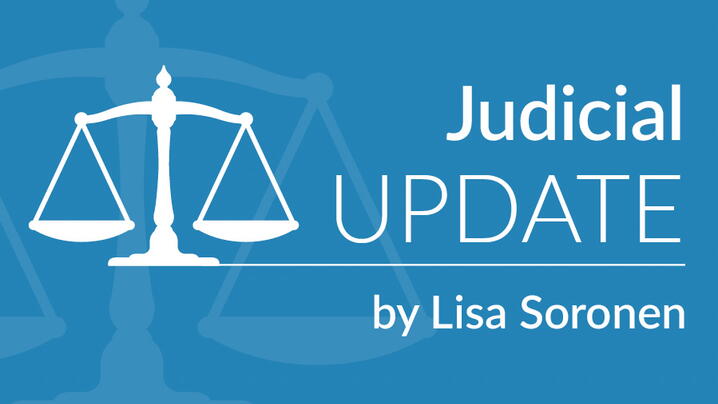
by Lisa Soronen, executive director, State and Local Legal Center
Just a few days before the Supreme Court decides whether it will review a temporary nationwide injunction issued by a federal court in California requiring the Trump administration to maintain much of the Deferred Action for Childhood Arrivals (DACA) program, a federal district court in New York issued a similar temporary nationwide injunction.
The courts’ reasoning in both decisions is similar. Both courts were clear the Trump administration may “indisputably . . . end the DACA program.” The administration, however, must offer “legally adequate reasons” for doing so. New York and 15 other states brought the case decided by the New York court.
DACA was established through a Department of Homeland Security (DHS) memorandum during the Obama presidency. The program allowed undocumented persons who arrived in the United States before age 16 and have lived here since June 15, 2007, to stay, work, and go to school in the United States without facing the risk of deportation for two years with renewals available.
DHS rescinded DACA in September 2017 after receiving a letter from the attorney general stating the program was unconstitutional and “has the same legal and constitutional defects that the courts recognized as to DAPA.”
The Deferred Action for Parents of Americans (DAPA) program would have granted deferred action to certain parents of U.S. citizens and lawful permanent residents. The federal Administrative Procedures Act (APA) prevents federal agencies from taking actions that are arbitrary, capricious, and an abuse of discretion. In 2015, the Fifth Circuit concluded DAPA likely was arbitrary and capricious in violation of the APA because it violated the Immigration and Nationality Act (INA). In 2016, the Supreme Court affirmed the Fifth Circuit decision 4-4.
The New York federal district court concluded the decision to rescind DACA because it was unlawful and unconstitutional was arbitrary and capricious in violation of the APA.
According to the court, “DACA is not unconstitutional simply because it was implemented by unilateral, executive action without express congressional authorization. The Executive Branch has wide discretion not to initiate or pursue specific enforcement actions.” While the Fifth Circuit considered DAPA unlawful because the INA prescribes the exclusive means by which aliens may obtain “lawful immigration classification from their children's immigration status,” DACA recipients would not be receiving an immigration classification through their children.
The district court also pointed out that if the acting DHS secretary really believed DACA was unconstitutional, she should have ended it immediately. Instead, she “directed her subordinates to begin a phased ‘wind-down of the program,’ under which DHS would continue to renew DACA applications that were set to expire in the next six months and would honor existing DACA benefits until they expired.”
The injunction, in this case, has the same scope as the injunction issued by the California court. It does not apply to those who have not previously applied to receive DACA (even if they were eligible), and DACA recipients may no longer be able to leave the United States and then be automatically “paroled” back into the United States.
New, Reduced Membership Dues
A new, reduced dues rate is available for CAOs/ACAOs, along with additional discounts for those in smaller communities, has been implemented. Learn more and be sure to join or renew today!
